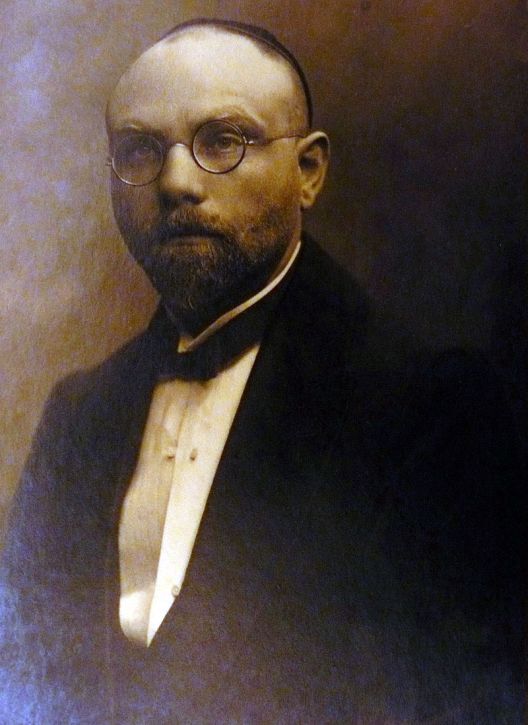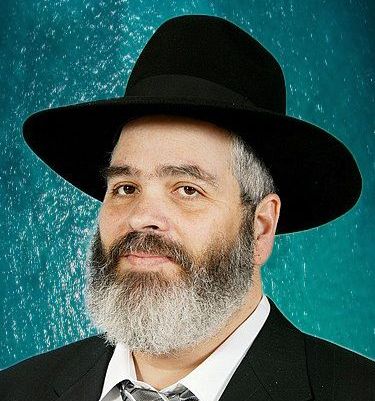  |
|
| |||||
This Google Custom Search looks only in this website. Victims Can Hold Palestine Bank Responsible for Terror Finance
On June 16 the United States Court of Appeals for the Second Circuit ruled in favor of the families of Palestinian terror victims holding an Israel bank responsible for financing terror. Agudath Israel of America filed a supporting brief in the case.
The case, Spetner v. Palestine Investment Bank, was brought by American citizens whose family members were injured or killed in terrorist attacks during the Second Intifadah. The plaintiffs sued the Palestinian Investment Bank ("PIB") which was used by terrorist organizations to encourage attacks against Israelis by providing financial assistance to families of suicide bombers and other terrorists.
The federal district court ruled that the court did not have jurisdiction to allow the lawsuit to proceed because the PIB used other banks as intermediaries to distribute money to families of terrorists.
The case was appealed...
It all began with a lot of noise. The main headlines in the Israeli press discussed the central charge against Prime Minister Netanyahu who is accused of having accepted bribery through seeking to get favorable press coverage — just like every politician before him and since. According to the prosecution, Netanyahu did favors for businessman Shaul Alowitz, a key man in the Bezeq combine, in exchange for a positive coverage in the press.
Let us review that Netanyahu is being accused of three offenses: breach of trust in Case 1000 (the case of gifts); and the same thing in Case 2000 (Yediot Acharonot - Nuni Moses). It is Case 4000, which has the most serious charge — bribery (in addition to breach of trust). The entire excuse and justification for bringing charges against a sitting prime minister (when the charges were first brought and again now) was the accusation of bribery. The other charges are all vague laws and not really serious crimes.
Netanyahu's original reaction was: "Nothing will come of this because nothing [criminal] happened."
This article was first published in 1995. Now in 5783 it is 99 years since these events.
Part II
Seventy-one years ago, on 29 Sivan, 5684, three pistol shots put an end to intensive efforts which would have nipped the Jewish-Arab conflict in the bud, when Dr. Yisroel Yaakov DeHaan was murdered on his way home from ma'ariv by agents of the Zionist leaders. His death marked the end of the last efforts of the old yishuv to take an active role in the political and diplomatic processes that surrounded Eretz Yisroel. Without DeHaan, the rabbonim of the old yishuv felt they had no way to influence or even participate in international negotiations, and the Zionists were more than happy to assume full responsibility for the future of Eretz Yisroel and even for the Jewish people as a whole, Rachmono litzlan.
The attitude and general policy followed by our rabbonim towards the Arabs — seeking peaceful coexistence, willingness to compromise and high priority for human life — is not something adopted recently as many think, but rather is the same consistent approach that was followed by HaRav Yosef Chaim Zonnenfeld and the other gedolim of the time a century ago. The rabbonim are guided by principles and not political expediency or a desire to favor one or the other political party.
Prior to his murder, Dr. DeHaan had worked for a long time to bring the views and attitudes of the rabbonim of the old yishuv to the attention of the Arab leaders. A long series of meetings and delegations, declarations and written summations took place under the direction and leadership of R' Yosef Chaim Zonnenfeld, zt'l, the rav of Yerushalayim.
Last week we described some of the meetings, in which DeHaan had gotten signed commitments from Arab leaders that their only objection was to the political aspirations of the Jews to a sovereign state. They were prepared to grant full rights, including the right of immigration, as long as there as no demand for political power. This was perfectly acceptable to the rabbonim, but not to the Zionist establishment.
The Zionists were not prepared to accept this, or even consider it as a starting point for negotiations. The prospect alarmed them so much that they decided to murder Dr. DeHaan, and with him the peace died, and left in its wake wars, terror, and death. The inescapable conclusion echoes to this very day: The Zionists in those days did not want peace!
The Knessia Gedola in Vienna
OPINION
The headlines in the written and electronic media dealt this past Monday with the testimony of billionaire Arnon Milchan, who occupies a slot in Case One Thousand, in which Netanyahu is accused of breach of trust.
On the first day Milchan testified for almost six hours straight regarding his ties with the Netanyahu couple and about the very generous gifts he gave them. The columnists extracted the juicy parts from the testimony which just prove that these gifts were part of the ongoing friendship between the billionaire and the Netanyahu.
Incidentally, this same billionaire also gave valuable presents to many others, including Knesset members and public figures, including — and who not? — Opposition Head Yair Lapid.
It was a spicy, entertaining testimony...
* * *
Outstanding Articles From Our Archives
IN-DEPTH FEATURES
by Mordecai Plaut
Although many people today do believe in G-d, the modern world is definite proof that even deep knowledge of the material world does not force one to be a believer. Nonetheless, if someone has a healthy mind (as HaRav Elchonon Wassermann calls it in Kovetz Ma'amorim) and has "perfected his mind" (as the Rambam calls it in Moreh Nevuchim) to be able to see things clearly, he can find many things in the world that lead to emunoh.
We truly live in an amazing world. There are many things that cannot be dismissed as coincidences. There are many things that, when normal people see them, they feel that they see the work of a Higher Intelligence, and not just the result of blind, random nature. I have catalogued some of these here.
All of these are logically and philosophically variations of what is known as the Argument from Design, the idea that the world we live in shows evidence of order and design that implies a Designer. However putting it that way is much drier than reading about the specific examples that are given. Even reading about these ideas and examples is, for many people, not as convincing as actually seeing some of them in person and working with them.
The Human Body
Opinion & Comment
by Y. Ben Avi
Books have always suffered from `printers' devils,' most of them involving misplaced pages or other obvious, negligible errors. But sometimes, the mistakes are more `creative.' Does `R' Eliezer Manwell' sound funny to you? And what does "133 Like the Grass of the Field" mean?
Printers, for their part, used to hang the galleys of books by the doorway of their print shops and promised to pay a reward to anyone who could find an error. Many mistakes stemmed from ignorance; for example, that of gentile printers who didn't understand what they were printing, yet nonetheless inserted their own `improvements' into the text. Most ridiculous of all are the amendments made by various censors who excelled in boorishness.
*
The scholar, hunched over his seforim, rubbed his eyes in amazement. Maseches Pesochim in front of him was opened to the third chapter, in the sugya of one who goes to slaughter his Pesach sacrifice and to circumcise his son. But in the copy of Beis Habechira by the Meiri which he was examining at that moment, the version was, shall we say, aberrant. "One who goes to slaughter his son and to circumcise his Pesach sacrifice . . . " There it was: black on white, in front of his very eyes.
This mistake that crept into the edition of the Meiri which was published in Jerusalem in 5724, is an interesting case in point of these very printers' errors, but not so rare an example. In another instance, any interested person could encounter a novel phrase, "133 Like the Grass of the Field." In the handwritten manuscript, the cursive letters were tzadi, tzadi, vov - tzatzu (sprang up), which was misinterpreted as the digits "133." The typesetter just went ahead without thinking, and produced the comical error which you see.
|
|||||




.jpg)



